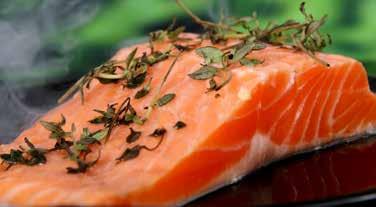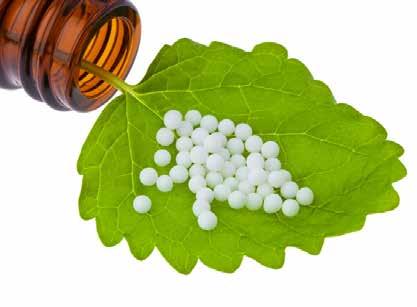
2 minute read
Know Your Fats
Omega 3 is a hot topic these days – and justifiably so, as our Western diets are generally far too low in Omega 3 fats. Fat is absolutely essential to our health; however, it is the type of fat we consume that matters most. Omega 3 fats are a critical component of good health: they are classed as essential fatty acids, which means that our bodies cannot make them – we can only get them from the food we eat. They are required to make certain signalling molecules that have a range of important roles.
They:
Advertisement
• Control the function of the cells in our body – and we have over 10 trillion cells, so we need them to work well;
• Help the muscles in our small and large intestines to work in a coordinated manner, which is necessary for effective digestion;
• Play a role in making sure that our blood clots in the appropriate way;
• Make sure that our blood vessels constrict or dilate correctly – important for maintaining healthy blood pressure;
• Are critical for development of the brain and retina in a growing foetus;
• Reduce inflammation in the body;
• Reduce the levels of triglycerides in blood. The New Zealand Heart Foundation recommends eating seafood or fish at least twice a week to reduce the risk of heart disease;
ROD HARMAN MOTORS LTD
Automotive Repairs • Servicing WOF Testing

1/8 Curley Ave, Silverdale Ph (09) 426 6066

• For a healthy immune system, by helping to fight infection; and for
• Good for overall brain health.
The three types of Omega 3 fats that have significant roles to play in our health are DHA, EPA and ALA.
EPA and DHA are found in oily fish like salmon, trout, flounder, sole, herring, tuna and sardines, and also in shellfish.
ALA is found in green leafy vegetables, flaxseeds, walnuts, pumpkin seeds, chia seeds. ALA needs to be converted in our bodies to EPA or DHA to provide the health benefits. Unfortunately, this process is not very effective, so consuming foods containing EPA and DHA is the best option.
There is some debate when it comes to fish oil supplements as to quality, rancidity, and their effectiveness long-term. For those who are Vegetarian or Vegan, finding a good quality microalgae supplement may be the best alternative, as they provide the only vegetarian source of EPA & DHA.
You can find me on Facebook as NutritionSense, for regular posts on health-related topics and recipes.
By Paula Southworth Nutritionist & Health Coach (BSc Human Nutrition and Sports Science)
www.nutritionsense.co.nz
Cheerleading... It’s all about trust.
Term Two enrolments are now available. Put your feet in our hands.










